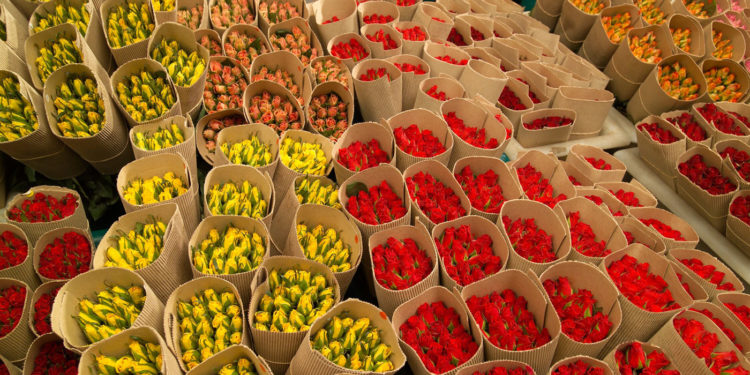Kenya has achieved a significant milestone in its trade relations with African countries as official data reveals a record-breaking goods trade surplus in the first quarter of 2023. The surplus was driven by a remarkable surge in exports, marking the highest growth in 12 years, coupled with a decline in imports for the first time in three years, according to provisional data from the Central Bank of Kenya.
During the January-March period, Kenyan traders successfully sold goods worth Ksh 98.85 billion to African nations, while the expenditure on imports amounted to Ksh 61.72 billion. Export earnings witnessed a robust 23.33 percent increase compared to the previous year, representing the strongest growth since 2011. Conversely, imports experienced a decline of 6.02 percent year-on-year from 2022 figures, resulting in a trade surplus of Ksh 37.14 billion, marking an impressive 156.45 percent climb over the same period last year.
This trade surplus has primarily been driven by an expansion in goods trade with Uganda, despite a decrease in trade with Tanzania, as indicated by the data. Economists suggest that the faster growth in exports compared to imports contributes to safeguarding local job opportunities and alleviating pressure on the Kenyan shilling.
Read more: Kenya’s Export Earnings Grew to Kshs 873.1 Billion in 2022 – KNBS
This positive development aligns with President William Ruto’s efforts to promote the removal of trade barriers among African countries and facilitate the movement of goods, services, and labor through the integration of regional trading blocs. Ruto aims to contribute to the realization of the African Continental Free Trade Agreement (AfCFTA), which seeks to establish the world’s largest single market encompassing approximately 1.4 billion people and an estimated economic output surpassing $3 trillion (Ksh 415.2 trillion).
Kenya’s approach to trade diplomacy, initiated by former President Uhuru Kenyatta, involves fostering closer ties within regional blocs such as the Comesa, East African Community, and Southern African Development Community in an effort to form a tripartite free trade area. Once the tripartite deal is achieved, creating a market spanning 27 countries, Kenya intends to advocate for further integration with other regional blocs like the Economic Community of West African States and the Maghreb.
Nevertheless, analysts have identified challenges such as a weak business environment characterized by high interest rates, unpredictable tax rates, and bureaucratic red tape in various African countries as major obstacles hindering the free flow of goods across the continent. Cultural and language barriers have also been cited as factors complicating market opportunities.
Africa’s share in Kenya’s total trade value for the first quarter of the year stood at Ksh 160.57 billion, accounting for 19.41 percent, slightly up from 18.27 percent in the previous year. Uganda remained the largest destination for Kenyan exports in Africa, receiving goods valued at Ksh 30.96 billion during the three-month period, marking a significant growth of 50.09 percent compared to the same period in 2022. Kenya primarily exports vegetable oils, fuel, pharmaceuticals, iron and steel, as well as paper and paperboard to Uganda.
Read more: Kenya eyeing Kshs. 1.3 trillion UK trade deals
Looking at imports from Uganda, Kenya witnessed a 34.20 percent year-on-year growth, with products such as dairy, eggs, sugar, and wood amounting to Ksh 10.62 billion during the review period.
Trade with Tanzania remained relatively stable, with Kenyan exports of Ksh 14.00 billion, up from Ksh 13.95 billion, while imports contracted by 32.66 percent to Sh7.99 billion from Ksh 11.86 billion. Kenya mainly imports cereals, vegetables, and wood from Tanzania and exports pharmaceutical products, plastics, iron, and steel.
South Africa remained Kenya’s primary source market on the continent, with imports totaling Ksh 16.52 billion, consisting of vehicles, spare parts, minerals, fuel, iron, steel, and machinery. However, the value of exports from South Africa decreased by 6.85 percent compared to the previous period’s total of Ksh 17.76 billion. Egypt followed as the second-largest source market, exporting goods such as plastics and sugar worth Ksh 11.57 billion during the three-month period, marking a marginal growth of 3.06 percent.
Africa’s underdeveloped transport networks have been identified as a major factor contributing to the high cost of goods and services by up to 40 percent, thereby affecting the competitiveness of intra-African trade compared to trade with developed continents like Europe.
Addressing these barriers, President Ruto emphasized the importance of tackling weak transport and logistics capacity, customs-related delays, rules of origin, import bans and export restrictions, quotas and levies, technical barriers, import permits and licenses to facilitate the establishment of a free trade area and promote seamless trade among African nations.
Going by Kenya’s increasing trade surplus and President Ruto’s commitment to trade integration, it is easy to see that the country is likely to continue strengthening its trade relations with African nations. Barriers might be ahead but sustained efforts at advocacy aimed at removing trade barriers and improving infrastructure will play a crucial role in promoting intra-African trade, driving economic growth, and enhancing regional cooperation. Kenya’s position as a key player in the African trade landscape is set to expand, fostering economic development and globalization for Kenyans.
Email your news TIPS to editor@thesharpdaily.com
















